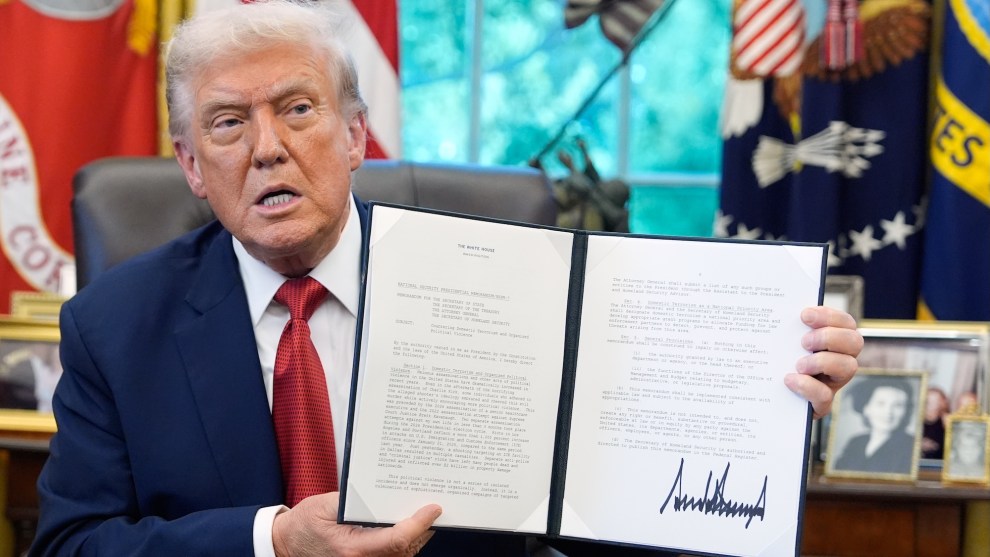Politics
Trump Threatens Military Action in Portland Amid Protests

President Donald Trump announced on September 25, 2025, his intention to deploy troops to Portland, Oregon, citing a need to address ongoing protests and unrest. In a post on Truth Social, Trump directed Secretary of Defense Pete Hegseth to provide “all necessary troops to protect war-ravaged Portland” and indicated he would authorize “full force, if necessary.” This marks a significant escalation in Trump’s military deployments to U.S. cities.
The decision follows Trump’s previous actions, including sending the National Guard to cities such as Los Angeles and Washington, D.C. His deployment to Los Angeles was ruled illegal by a federal court, raising questions about the legality of his military interventions. In Portland, Mayor Keith Wilson expressed concern over the increased presence of federal agents, stating, “They are here without precedent or purpose.”
Politicians in Oregon have voiced strong opposition to Trump’s actions. Senator Ron Wyden (D-Ore.) criticized the president’s plans, asserting that “Portland is a peaceful, vibrant city with no need for federal agents on our streets.” He urged residents to resist what he characterized as Trump’s attempts to incite violence within the community.
The legal basis for deploying troops without state consent is tenuous at best. Historical precedent shows that previous presidents, including Abraham Lincoln during the Civil War, invoked military action in response to significant crises. In contrast, Trump’s claims of emergencies have been widely viewed as exaggerated. The Posse Comitatus Act of 1878 restricts the use of federal troops for domestic law enforcement, and recent rulings have questioned the legality of Trump’s actions.
In September, federal District Court Judge Charles Breyer ruled that Trump’s deployment of active-duty troops to Los Angeles violated legal boundaries, cautioning that Trump was “creating a national police force with the president as its chief.” The Trump administration is currently appealing this decision.
Trump’s recent threats follow a sweeping executive order he issued, classifying “Antifa” as a domestic terrorism organization. Critics argue that this designation misrepresents the group as a formal organization rather than a loose coalition opposing far-right extremism.
In an interview with Mother Jones, civil liberties advocate Chip Gibbons described Trump’s executive order as “extremely disturbing,” warning that it could facilitate federal law enforcement actions against progressive groups. Gibbons noted, “The national security state is a wonderful tool for a skilled authoritarian to crush American democracy.”
As tensions rise in Portland and across the nation, the implications of Trump’s military threats and his approach to domestic unrest continue to be a subject of intense debate and scrutiny.
-

 Lifestyle5 months ago
Lifestyle5 months agoLibraries Challenge Rising E-Book Costs Amid Growing Demand
-

 Sports4 months ago
Sports4 months agoTyreek Hill Responds to Tua Tagovailoa’s Comments on Team Dynamics
-

 Sports4 months ago
Sports4 months agoLiverpool Secures Agreement to Sign Young Striker Will Wright
-

 Lifestyle4 months ago
Lifestyle4 months agoSave Your Split Tomatoes: Expert Tips for Gardeners
-

 Lifestyle4 months ago
Lifestyle4 months agoPrincess Beatrice’s Daughter Athena Joins Siblings at London Parade
-

 Science4 months ago
Science4 months agoSan Francisco Hosts Unique Contest to Identify “Performative Males”
-

 World4 months ago
World4 months agoWinter Storms Lash New South Wales with Snow, Flood Risks
-

 Science5 months ago
Science5 months agoTrump Administration Moves to Repeal Key Climate Regulation
-

 Business5 months ago
Business5 months agoSoFi Technologies Shares Slip 2% Following Insider Stock Sale
-

 Science5 months ago
Science5 months agoNew Tool Reveals Link Between Horse Coat Condition and Parasites
-

 Sports4 months ago
Sports4 months agoElon Musk Sculpture Travels From Utah to Yosemite National Park
-

 Science5 months ago
Science5 months agoNew Study Confirms Humans Transported Stonehenge Bluestones









